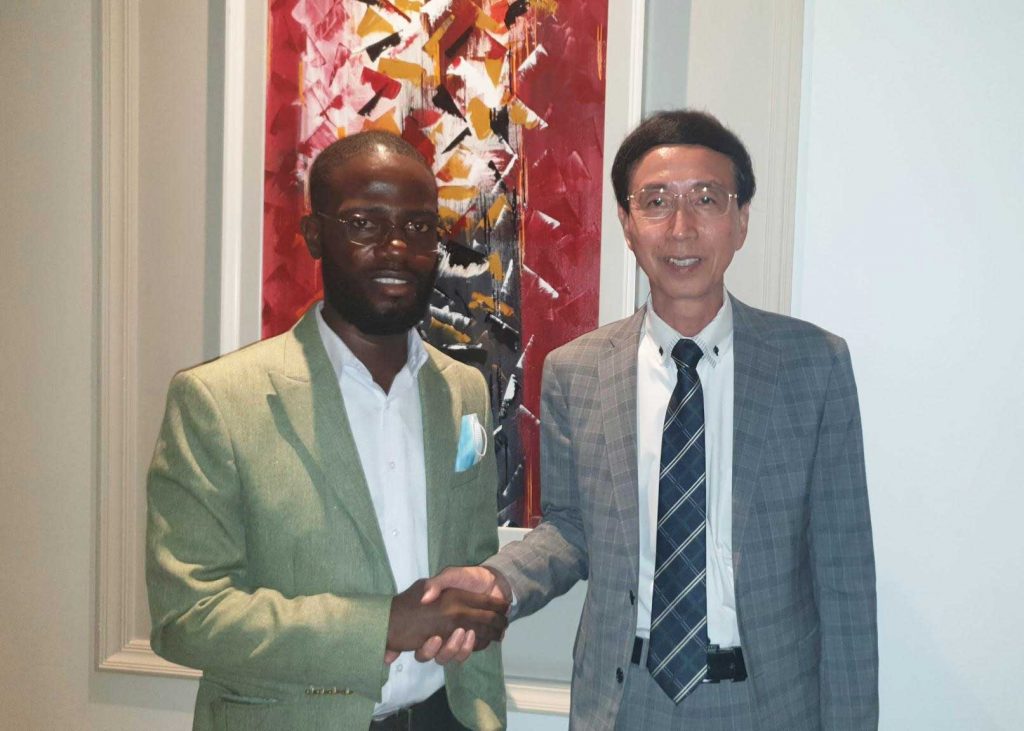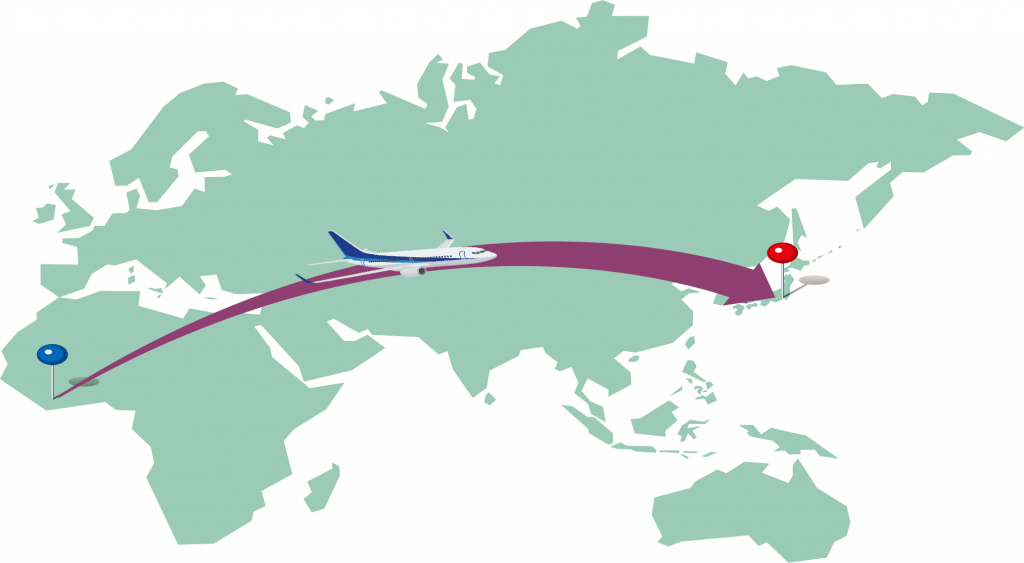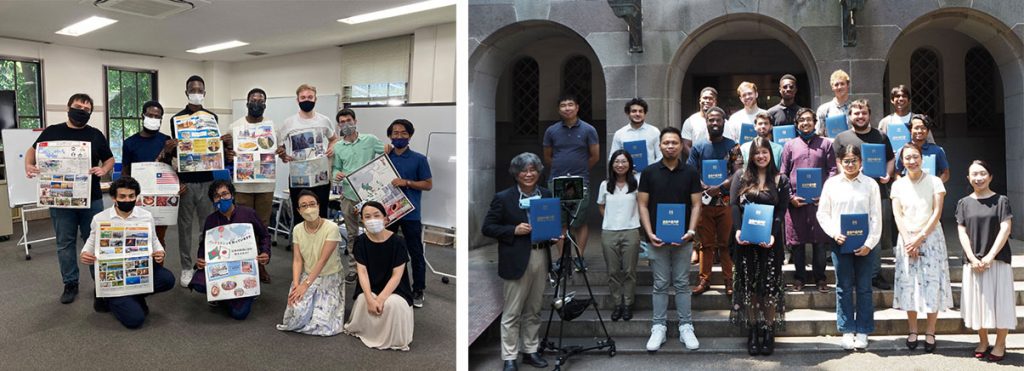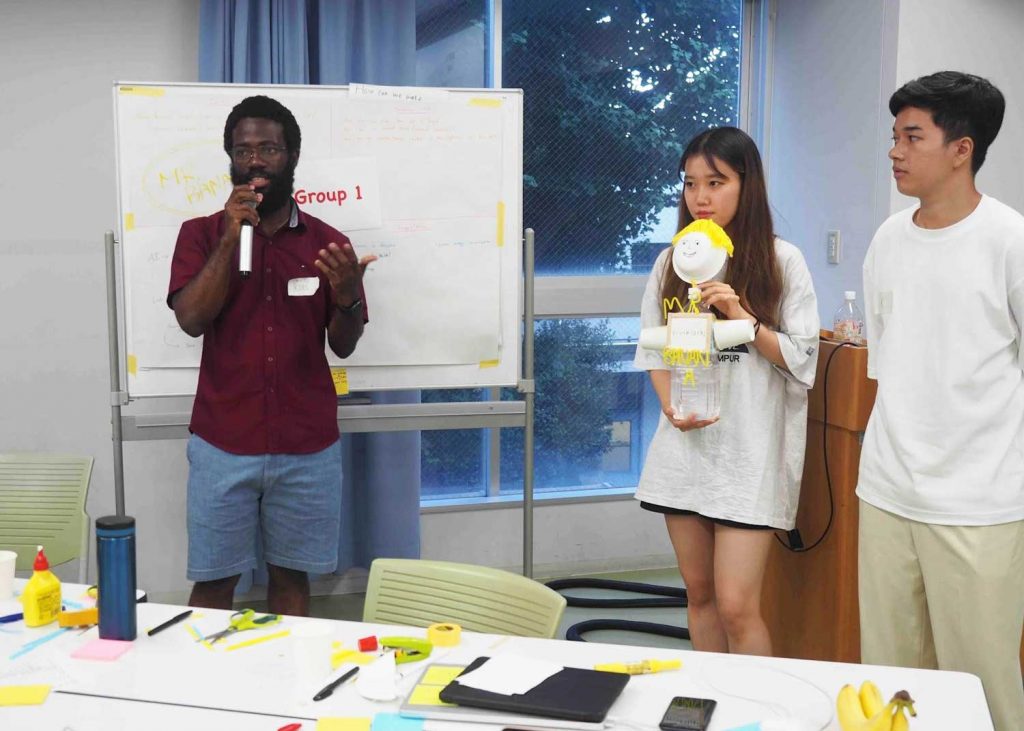As a MEXT scholar representing Liberia at the Tokyo Institute of Technology, my journey is more than an academic pursuit—it’s a profound exploration of environmental engineering, cultural exchange, and leadership development. Join me as I navigate through the application process, the transition from a research student to a master’s candidate, and how I am actively engage in extracurricular activities. Through this, I hope to shed light on the unique experiences and opportunities that the MEXT scholarship and Tokyo Tech offer to international students.
Background and Motivation: Unveiling My Passion for Environmental Solutions
My academic background in chemistry and physics fueled a deep-seated desire to address real-world issues, particularly in Liberia. The nation grapples with solid waste management and sustainable energy challenges. Delving into scholarship opportunities, the Japanese MEX scholarship emerged as the ideal path, considering Japan’s success in waste management and clean energy technologies.
The MEXT Application Process: A Competitive Journey to Cultural Exchange
Securing the Japanese Embassy-recommended MEXT scholarship was a competitive feat, with only one slot allocated for Liberia annually. This scholarship, under the auspices of the Ministry of Education, Culture, Sports, Science, and Technology (MEXT) of Japan, stood as an opportunity for fostering cultural exchange and cultivating a diverse and enriched academic environment in Japan.

Photo 1: After obtaining the scholarship, I had dinner with Ambassador Hisanobu Mochizuki (the Japanese Ambassador to Liberia).
The Japanese Embassy-recommended MEXT Scholarship involves a two-stage screening process. The first screening is conducted from April to July in the year prior to intended enrollment (in my case, 2021). It encompasses the submission of application documents, examinations, and an interview. The second screening, occurring from August to October, involves securing provisional acceptance from a research supervisor or professor at a Japanese university and submitting a Placement Reference Application Form. Successful completion of these screenings results in the issuance of a notification of selection results, university placement, and an official enrollment letter as a research student. The entire application process unfolds from April/May of each application year to October.
Upon successfully passing the first screening, the embassy provided me with a passing certificate, directing me to request a letter of acceptance from my preferred faculty member from a Japanese university. I obtained this letter from my research supervisor, Associate Professor Fumitake Takahashi, a distinguished faculty member of the School of Environment and Society at Tokyo Institute of Technology. To identify potential academic supervisors at Tokyo Tech and access their contact details, applicants can utilize Tokyo Tech STAR Search, the university’s researcher database available on the Tokyo Tech website. It’s essential to note that the issuance of the Letter of Acceptance may take approximately a month. This document confirms the commitment of the Tokyo Tech faculty member to serve as the candidate’s academic supervisor if allocated to Tokyo Tech as a MEXT Scholarship Student. Although the procedure may vary between embassies, please refer to “at a glance write-up” by Tokyo Tech as your general reference – Japanese Government (MEXT) Scholarship (Embassy Recommendation)

Photo 2: Travelled 14,409 kilometers from Liberia to Tokyo
In 2022, having successfully navigated the selection process, I faced the decision to travel 14,409 kilometers, leaving behind the comfort of family and loved ones. The MEXT scholarship represented more than an academic pursuit; it was an extraordinary opportunity to access a world-class education, expand my network globally, and undergo transformative life experiences. However, the prospect of stepping out of my familiar surroundings presented a formidable challenge. The distinct stages that follow the acquisition of the scholarship and acceptance by a university are as follows:
Phase 1: Research Student (Pre-Masters/Pre-Doctoral):
Every MEXT scholar is required to serve as a research student for around six months to two years, depending on the program and academic objectives, before enrolling as a master’s or doctoral student. This status allows recipients to conduct research under the guidance of a Japanese professor or researcher. During this phase, students engage in research related to their proposed master’s or doctoral studies as well as write the entrance examination for enrollment in the master’s or doctoral program. They may also attend Japanese language and culture courses to facilitate their integration into Japanese society.
During my time as a research student, my research supervisor, Associate Professor Fumitake Takahashi, and I worked on a couple of things, such as:
I. Structuring My Research Proposal: He guided me in crafting a well-organized and comprehensive research proposal, ensuring its alignment with the academic standards and objectives of my graduate major.
II. Discussions on Current Research Trends: We engaged in discussions about the ongoing research trends within the laboratory, which proved instrumental in providing me with valuable insights into the dynamic landscape of my field of study.
III. Career Pathway Exploration: Professor Takahashi and I delved into conversations about my envisioned career pathway, strategizing on how to navigate and excel in the academic and professional realms. These discussions also involved considerations of the support needed for my aspirations.
Simultaneously, I actively participated in Japanese language and culture classes while gearing up for the master’s entrance examination. Despite the majority of graduate programs, including mine, being conducted in English at Tokyo Tech, these language and culture classes played a pivotal role in facilitating my integration into Japanese society. Recognizing the importance of cultural understanding beyond campus life, I embraced the opportunity to broaden my language skills.

During this period, as the scholarship recipient, I was required to open a bank account and complete other legal registrations at the ward office corresponding to my residence. While English support at these institutions is often challenging to secure, Professor Takahashi and Tokyo Tech demonstrated proactive support by assigning a knowledgeable senior student proficient in both culture and language to assist and guide me.
Furthermore, through Nagatsuta House, my dormitory, Tokyo Tech provided tutors. Tutors residing in the dormitory made themselves readily available to offer guidance and assistance whenever needed, fostering a supportive community environment.
Approximately two weeks after successfully completing the entrance examination, I received my admission package, marking my official enrollment in the School of Environment and Society, Department of Transdisciplinary Science and Engineering as a master’s student. This multifaceted support system exemplifies the commitment of Tokyo Tech and its faculty to ensure a smooth transition and successful academic journey for MEXT scholarship recipients.
Phase 2: Master’s Program:
Upon concluding the research period and securing my admission package, I enrolled in the master’s program within the School of Environment and Society, Department of Transdisciplinary Science and Engineering at the Tokyo Institute of Technology.
Typically spanning two years, the master’s program is a comprehensive experience encompassing coursework, research endeavors, and potential internships. A hallmark of this program is the weekly laboratory seminars, which provide a platform for students to showcase and discuss their research progress, fostering a collaborative and intellectually stimulating environment.
Navigating through the program, I sought guidance from my professor and obtained approval to tailor my academic focus. In my first year as a master’s student, my emphasis primarily rested on engaging with a diverse array of classes, broadening my knowledge base, and refining my academic skill set.
As I progress into my second year, my concentration has shifted exclusively towards my research and thesis. This intentional progression underscores the progressive nature of the master’s program, encouraging students to transition from foundational coursework to concentrated research pursuits. The opportunity to immerse myself in both academic exploration and hands-on research has been instrumental in shaping my expertise and contributing to the dynamic academic community at Tokyo Tech.
I am slated to graduate from the master’s program at Tokyo Tech in September 2024. Since initiating my application for the MEXT Scholarship, I have consistently expressed my strong desire to progress to the doctoral program, as detailed in my application form. This aspiration seamlessly aligns with my enduring dedication to education, cultivated over a decade in roles such as secondary school instructor, university lecturer, and school administrator.
The decision to pursue a doctoral degree is grounded in a profound understanding of its pivotal role in shaping the academic landscape. Leveraging my experience and commitment, I am sure to embark on a doctoral journey at Tokyo Tech. Renowned for its high-quality education, cutting-edge research, and support for international students, Tokyo Institute of Technology stands out as an ideal setting for my doctoral pursuits. Fortunately, the MEXT Scholarship provides a pathway for qualified scholars like me to extend their academic endeavors.
Extracurricular Activities: Enriching Student Life Beyond Academics
As a MEXT scholar, the prospect of participating in extracurricular activities is not merely a possibility but an enriching component of my academic journey. With the support of my research supervisor, I count myself fortunate to be part of the vibrant community at Tokyo .
Tokyo Tech’s Supportive Environment:
Tokyo Tech stands out as a welcoming hub for international students, offering a multitude of graduate and doctoral programs taught predominantly in English. Beyond the classroom, the institution extends robust English language support at various offices, fostering an inclusive atmosphere for foreign students. This inclusive environment also encompasses diverse international student groups and a plethora of extracurricular activities that contribute to making our student lives both meaningful and enjoyable.
Student Ambassadorship and ToTAL Membership:
With the approval of my research supervisor, I proudly serve as a student ambassador, a role that allows me to share the remarkable experiences unfolding at Tokyo Tech with fellow Africans and the global community. This outreach spans the spectrum of world-class education, cutting-edge research, and a conducive learning environment that Tokyo Tech offers to all its students.
Simultaneously, I have become an active participant in the Tokyo Tech Academy for Leadership (ToTAL). This initiative seeks to cultivate an internationally acclaimed graduate program that molds individuals into influential contributors, addressing the varied demands of the societal, industrial, academic, and governmental sectors.
Shaping Leadership Skills at ToTAL:
Since joining ToTAL, I’ve gained great skills and insights into becoming a global leader and engineer. The program’s experiential and informative workshops cover a spectrum of topics, including design thinking, conflict resolution, negotiation, book dialogue for leadership, and professional and value creation. These sessions have not only broadened my perspective on leadership but have also enhanced my communication and listening skills.
As ToTAL aligns with Tokyo Tech’s commitment to providing a holistic educational experience, this initiative has proven to be an ideal platform for personal and professional development. Through this unique opportunity and leadership training, I am better equipped to contribute meaningfully to the global community, bridging the demands of various sectors and fostering a spirit of collaboration and innovation.

Photo 4: Presentation of our group prototype during ToTAL’s Design Thinking Workshop
Conclusion: Gratitude and Advocacy
Expressing gratitude to the Japanese government for this unique opportunity, I encourage students worldwide, especially Africans, to seize the chance to study at Tokyo Tech in Japan. Tokyo Institute of Technology, with its academic excellence and supportive environment, stands as a beacon for aspiring scholars. As I conclude, I appeal to the Tokyo Tech administration to foster more partnerships with African universities and to the MEXT office to consider increasing scholarship slots for Liberia, opening doors for more transformative journeys.
